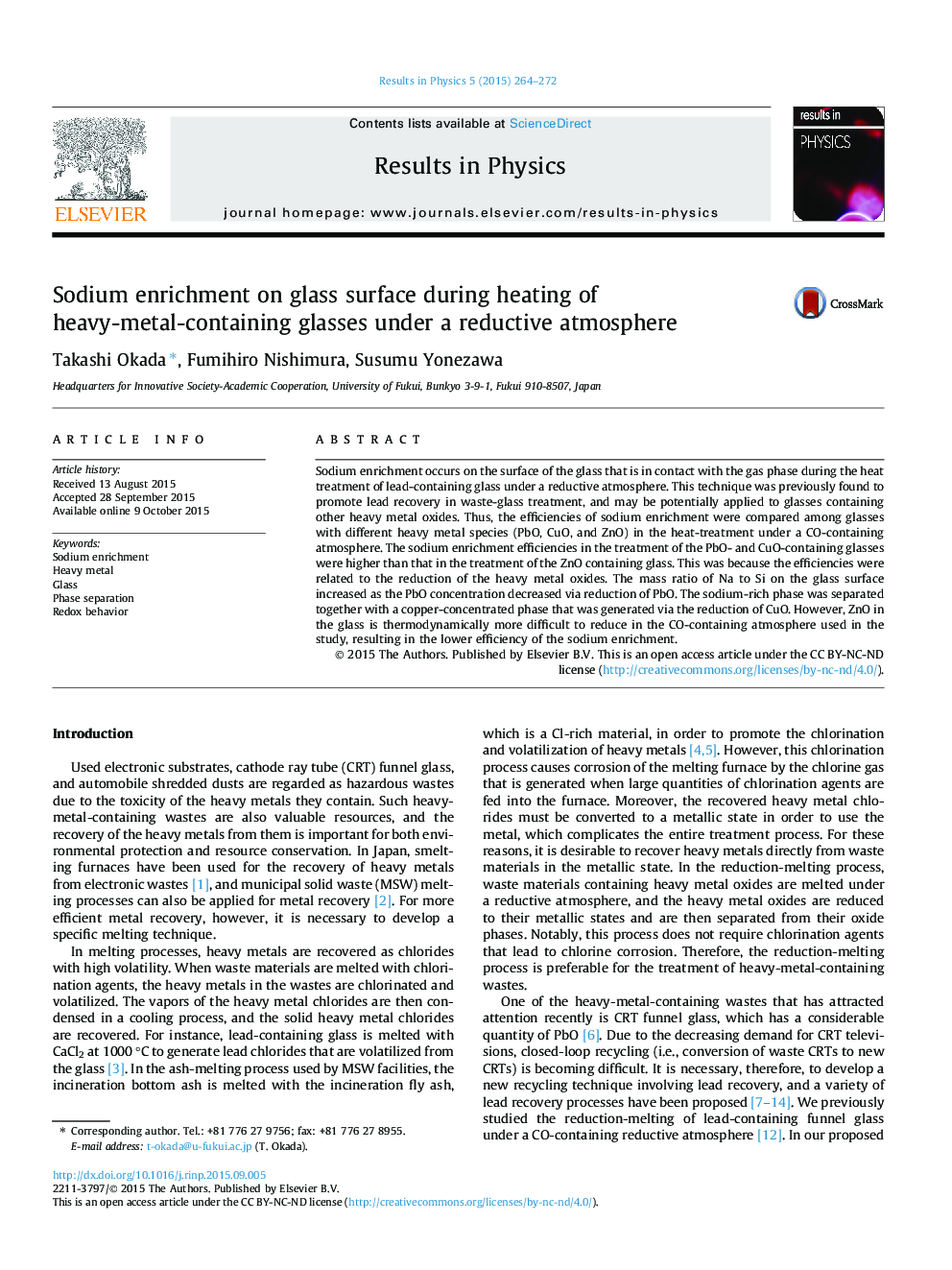| Article ID | Journal | Published Year | Pages | File Type |
|---|---|---|---|---|
| 1876721 | Results in Physics | 2015 | 9 Pages |
Abstract
Sodium enrichment occurs on the surface of the glass that is in contact with the gas phase during the heat treatment of lead-containing glass under a reductive atmosphere. This technique was previously found to promote lead recovery in waste-glass treatment, and may be potentially applied to glasses containing other heavy metal oxides. Thus, the efficiencies of sodium enrichment were compared among glasses with different heavy metal species (PbO, CuO, and ZnO) in the heat-treatment under a CO-containing atmosphere. The sodium enrichment efficiencies in the treatment of the PbO- and CuO-containing glasses were higher than that in the treatment of the ZnO containing glass. This was because the efficiencies were related to the reduction of the heavy metal oxides. The mass ratio of Na to Si on the glass surface increased as the PbO concentration decreased via reduction of PbO. The sodium-rich phase was separated together with a copper-concentrated phase that was generated via the reduction of CuO. However, ZnO in the glass is thermodynamically more difficult to reduce in the CO-containing atmosphere used in the study, resulting in the lower efficiency of the sodium enrichment.
Related Topics
Physical Sciences and Engineering
Physics and Astronomy
Physics and Astronomy (General)
Authors
Takashi Okada, Fumihiro Nishimura, Susumu Yonezawa,
